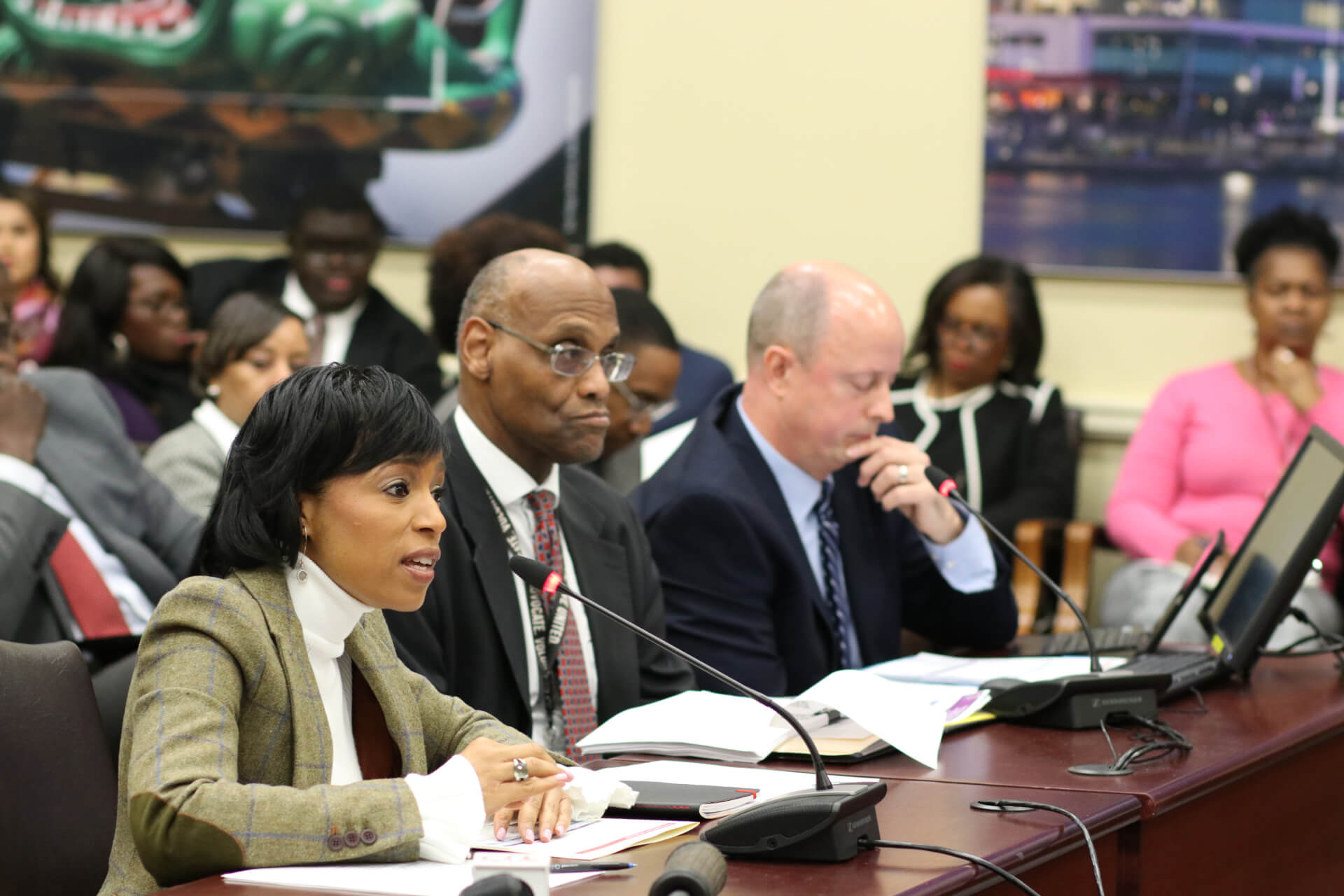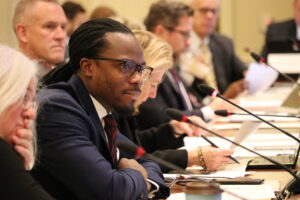Legislative Leaders Promise Help for Baltimore, Prince George’s on Kirwan Costs

Prince George’s County officials are grappling with a proposed state education funding formula that could require a nine-digit local funding increase over the next decade.
The proposed Kirwan Commission reforms would pump an additional $4 billion into annual education spending by 2030, including about $1.2 billion annually paid by local governments.
By 2030, Prince George’s County would be expected to pay about $360.9 million more on education each year, according to a proposed formula approved by the Kirwan Commission in November — but which is likely to be tweaked by lawmakers this General Assembly session.
The city of Baltimore faces a similar heavy lift under the currently proposed formula, which proposes a $329.4 million annual increase in education spending by 2030.
Leaders in both jurisdictions have expressed concern about the dramatic increases, though they support the policy proposals of the commission, which would expand pre-kindergarten and career education for high schoolers, increase pay and career opportunities for teachers, and increase state funding for schools with high concentrations of poverty.
“We believe the commission’s work was excellent. …The Kirwan Commission’s recommendations, all of us agree with wholeheartedly,” Prince George’s County Executive Angela D. Alsobrooks (D) said last week. “The discussion we’re having now is about the numbers.”
The increase is akin to cutting the entire budget for the county’s police department, the county executive said. In Baltimore, Mayor Bernard C. “Jack” Young has asked all city agencies to trim their budgets by 5 percent to help balance the city’s budget and anticipate greater education spending.
Keeping the funding formula as is “will create a situation where the counties with the students with the most needs and the counties with the least resources have to, in the long run, commit the most money,” said Stanley A. Earley, Prince George’s County budget director.
Some local governments, which have well-funded school systems already, won’t necessarily be required to pay more into their education systems through the Kirwan plan, though changes in programming would be necessary. Prince George’s County officials have crunched the increased payments by local governments under the proposed funding formula and said the county and city will pay 80 percent of the total increase of all local spending in the state.
But state Del. Ben Barnes (D-Prince George’s) said figures like that can be misleading.
Not only is the county being asked to put in more money, the state is also putting in more. Over the 10-year funding increase, Prince George’s is expected to receive an additional $2.1 billion from the state, compared to Howard County, which will get an additional $500 million in the same timeframe.
Barnes said he was still committed to getting as much state assistance for the county as possible.
“I don’t only want to get the most state dollars, I want to get the more most state dollars,” Barnes said. “We want to get as much as we can, we’re going to work on it.”
Part of the reason for the large increases in some jurisdictions is a requirement in the new funding formula that counties contribute a local share to programs for at-risk students, English language learners and special education that wasn’t previously required. Counties that didn’t contribute full local shares to those programs in the past will have a heavier funding burden now. The city and Prince George’s County also have large populations of students that fall into those programs.

Del. Alonzo T. Washington (D-Prince George’s) said the state and the county have been underfunding education. Photo by Danielle E. Gaines.
Del. Alonzo T. Washington (D-Prince George’s), who is the House Ways & Means vice chairman and a member of the Kirwan Commission panel, said both the state and county have been guilty of underfunding Prince George’s schools in the past.
“It concerns me as well that they’re proposing us to pay a significant amount. …However our local jurisdictions as well as our state are underfunding our school system. Our school system is underfunded to the tune of $2,000 to $3,000 per student,” Washington said.
Del. Wanika Fisher (D-Prince George’s) said she remains concerned about racial and economic disparities as lawmakers debate the Kirwan Commission proposals.
“When you look at Baltimore City and you look at Prince George’s County, it’s not just the fact that it’s the two areas with the most need. We are two jurisdictions of color that have been systematically oppressed,” Fisher said. “…It’s not that people didn’t want to fund education fully. It’s that you have a lot of need and you’re dealing with a lot of systematic issues when it comes to the financial well-being of households.”
Top legislative leaders have committed to reviewing the proposed funding formula to see if the burden on the two jurisdictions ― and others ― can be eased.
“The last thing that we want is to have those two jurisdictions’ kids cheated,” said House Appropriations Chairwoman Maggie L. McIntosh (D-Baltimore City).
Legislative analysts are working to come up with proposed solutions, which McIntosh said are expected to resolve the concerns.
“It still will ask Baltimore City and Prince George’s County ― and all counties ― to come up with a local share,” McIntosh said. “But I believe they have found something in the formula that will help Baltimore City and Prince George’s County in particular.”
Senate Budget & Taxation Chairman Guy J. Guzzone (D-Howard) said the goal is to get every county and city on board with the proposed funding formula by making sure it works well for every jurisdiction.
“No matter where these kids are, they’re all our kids,” Guzzone said.




 Creative Commons Attribution
Creative Commons Attribution